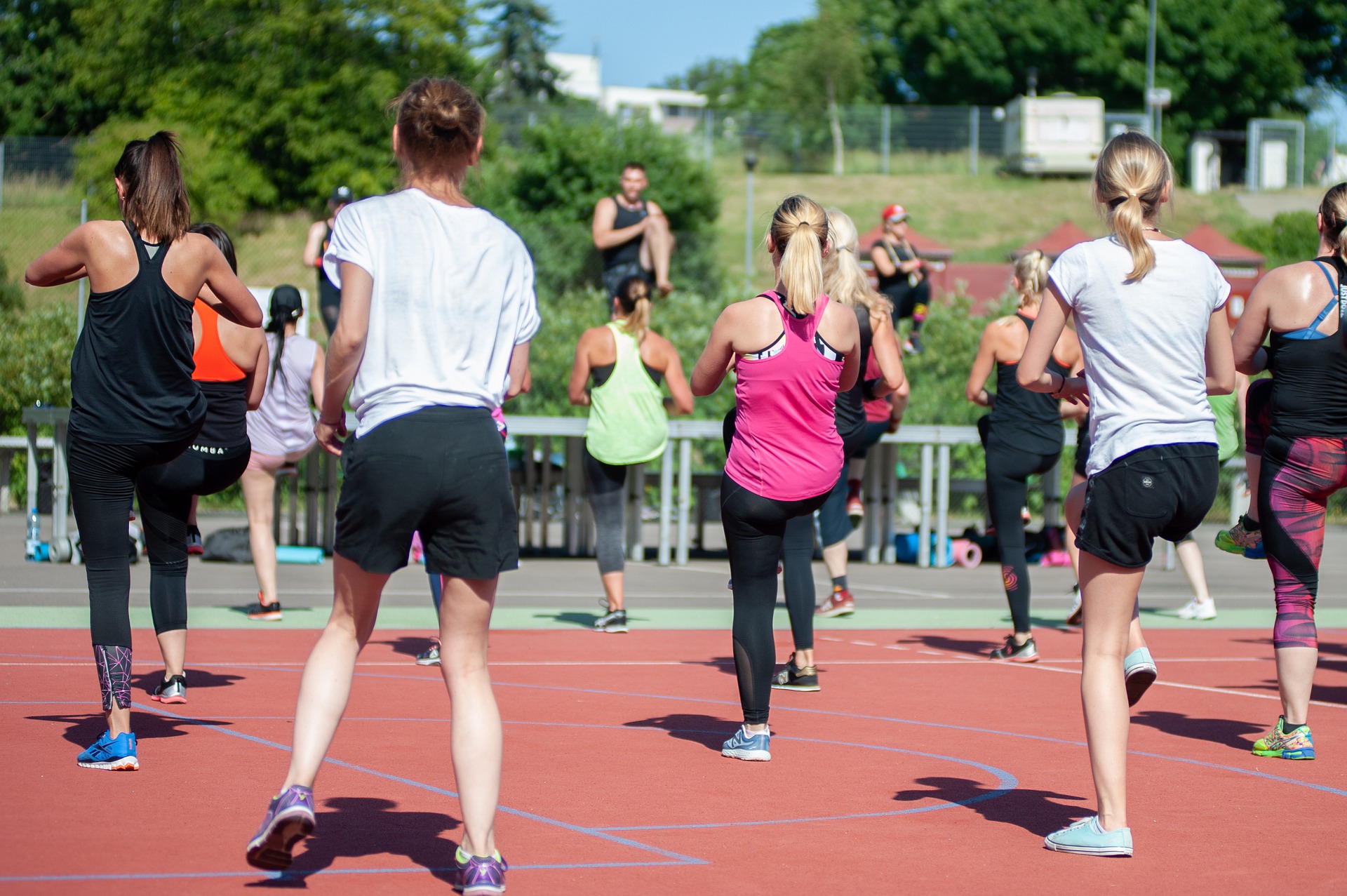Description
Cancer du cerveau
Cancer du cerveau
- Tumor treating fields for newly diagnosed glioblastoma: a retrospective analysison 16 février 2026
J Neurooncol. 2026 Feb 16;177(1):1. doi: 10.1007/s11060-026-05467-w.ABSTRACTINTRODUCTION: Tumor Treating Fields (TTFields), as an emerging non-invasive therapeutic approach, has gradually […]
- Role of Physical Activity in Women's Mid-life: Neuroscience, Longevity, and Disease Preventionon 16 janvier 2026
J Midlife Health. 2025 Oct-Dec;16(4):496-499. doi: 10.4103/jmh.jmh_140_25. Epub 2025 Dec 8.ABSTRACTPhysical activity (PA) is vital for managing menopausal symptoms and reducing noncommunicable […]
- Physical function and rehabilitation in patients with brain tumours: narrative reviewon 10 Décembre 2025
BMJ Support Palliat Care. 2025 Nov 20:spcare-2025-005761. doi: 10.1136/spcare-2025-005761. Online ahead of print.ABSTRACTPatients with brain tumours experience a variety of symptoms and side effects […]
Cancer gynécologique
Cancer gynécologique
- Physical activity and exercise in cervical cancer: a state-of-the-art review.on 16 février 2026
Cancer Causes & Control; 03/01/2026(AN 191472199); ISSN: 09575243CINAHL Complete
- The impact of a co-created yoga program for women diagnosed with gynecologic cancer on patient-reported outcomes: a series N-of-1 trialon 16 janvier 2026
Support Care Cancer. 2026 Jan 10;34(2):80. doi: 10.1007/s00520-025-10279-1.ABSTRACTOBJECTIVE: Psychosocial oncology supportive care research has focused on adults diagnosed with breast cancer and […]
- Effect of exercise intervention on quality of life, sleep quality, and BMI in patients with ovarian cancer: A systematic review and meta-analysis.on 16 janvier 2026
Medicine; 12/12/2025(AN 190257544); ISSN: 00257974CINAHL Complete
Cancer hématologique
Cancer hématologique
- Experiences of people with haematological cancer and impaired integrity of the skin and perianal mucosa: A qualitative studyon 16 février 2026
Eur J Oncol Nurs. 2026 Feb;80:103108. doi: 10.1016/j.ejon.2026.103108. Epub 2026 Jan 20.ABSTRACTBACKGROUND: Impaired integrity of the skin and perianal mucosa may be a side effect of treatment for […]
- Distress, problems and unmet rehabilitation needs after haematopoietic stem cell transplantation for haematologic malignancies: A cross-sectional study.on 16 février 2026
European Journal of Oncology Nursing; 02/01/2026Haematopoietic stem cell transplantation (HSCT) is an intensive treatment potentially resulting in distress, physical and psychosocial problems, and […]
- Adapted physical activity, exergaming and relaxation by biofeedback in haematological intensive care unit in France: study protocol of a randomised controlled trial (APAER-H trial)on 10 Décembre 2025
BMJ Open. 2025 Dec 4;15(12):e099876. doi: 10.1136/bmjopen-2025-099876.ABSTRACTINTRODUCTION: Haematological malignancies and their treatments are known for their significant adverse effects on […]
Cancer du pancréas
Cancer du pancréas
- Trimodal Prehabilitation with Supervised Exercise During Neoadjuvant Chemotherapy in Localized Pancreatic Canceron 16 janvier 2026
Med Sci Sports Exerc. 2025 Dec 23. doi: 10.1249/MSS.0000000000003931. Online ahead of print.ABSTRACTBACKGROUND: Pancreatic cancer (PC) is highly lethal, with surgery as the only curative option but […]
- Prehabilitation and Immunonutrition in Pancreatic Cancer Therapyon 10 Décembre 2025
Surg Oncol Clin N Am. 2026 Jan;35(1):55-69. doi: 10.1016/j.soc.2025.03.004. Epub 2025 Jun 7.ABSTRACTPancreatic cancer is an aggressive disease with demanding therapies. Patients often present […]
- Pre-diagnosis diabetes, life-course body mass index and physical activity, and pancreatic cancer survival in older adultson 10 Décembre 2025
JNCI Cancer Spectr. 2025 Nov 13:pkaf110. doi: 10.1093/jncics/pkaf110. Online ahead of print.ABSTRACTBACKGROUND: Diabetes and excess body-weight are established risk factors for pancreatic ductal […]
Cancer des poumons
Cancer des poumons
- Nurse-supported hybrid home-based pulmonary rehabilitation improves psychological distress, quality of life, and functional performance in advanced lung cancer: A randomized controlled trialon 16 février 2026
Eur J Oncol Nurs. 2026 Feb 5;81:103130. doi: 10.1016/j.ejon.2026.103130. Online ahead of print.ABSTRACTPURPOSE: This study aimed to evaluate the effectiveness and safety of a nurse-supported hybrid […]
- Effects of exercise on people living with advanced lung cancer: a systematic review and meta-analysison 16 février 2026
Support Care Cancer. 2026 Feb 10;34(3):179. doi: 10.1007/s00520-026-10431-5.ABSTRACTPURPOSE: Exercise has the potential to improve and maintain physical function, alleviate symptoms, improve quality […]
- Effects of exercise on people living with advanced lung cancer: a systematic review and meta-analysis.on 16 février 2026
Supportive Care in Cancer; 03/01/2026(AN 191510692); ISSN: 09414355CINAHL Complete
Cancer du sein
Cancer du sein
- Safety and Feasibility of Long-Term High-Intensity Interval Training With and Without Peer Support in Cancer Survivorson 16 février 2026
Scand J Med Sci Sports. 2026 Feb;36(2):e70221. doi: 10.1111/sms.70221.ABSTRACTDespite the benefits of physical activity and exercise, including high-intensity interval training (HIIT), few cancer […]
- Presenteeism in working-age breast cancer survivors 1-5 years after surgery: relative contributions of treatment-related symptoms and modifiable factorson 16 février 2026
Breast Cancer. 2026 Feb 9. doi: 10.1007/s12282-026-01835-6. Online ahead of print.ABSTRACTBACKGROUND: Presenteeism among working-age breast cancer survivors drives job loss and economic burden, but […]
- Exercise-induced immune response in breast cancer patients during prehabilitation, neoadjuvant or adjuvant treatment: A systematic review and meta-analysison 16 février 2026
Eur J Clin Invest. 2026 Feb;56(2):e70176. doi: 10.1111/eci.70176.ABSTRACTBACKGROUND: Adjuvant and neoadjuvant treatment for breast cancer (BC) such as chemotherapy and radiotherapy can lead to immune […]
Pour obtenir les documents
L’accès au texte intégral des documents est restreint au personnel et aux médecins du CHUM en fonction des abonnements de la bibliothèque. Certains documents sont en accès libre sur le web.
Si vous êtes branchés sur le réseau CHUM :
Cliquer sur les liens fournis pour chaque référence pour vérifier la disponibilité du texte intégral.
Pour les articles provenant de PubMed, cliquer préalablement sur le lien suivant pour afficher la disponibilité du document.
Si vous êtes dans un autre établissement et que vous n’arrivez pas à accéder au texte intégral d’un article à partir du lien donné, vérifier auprès de la bibliothèque de votre institution en donnant la référence complète du document.
|
Avis de non-responsabilité
Le contenu des veilles informationnelles ou stratégiques (ci-après appelée « Veilles ») est mis à votre disposition à titre informatif pour un usage personnel exclusif. Tout usage commercial du contenu des Veilles est strictement interdit. Tous les éléments, articles, rapports ou toute autre source d’information figurant dans les Veilles, vous sont fournis « tels quels », sans garantie d’aucune sorte. Eu égard aux propos tenus dans les articles et les rapports sélectionnés pour les Veilles, le CHUM n’offre aucune garantie notamment d’exhaustivité, de fiabilité, d’actualité et d’exactitude.Le CHUM ne pourra en aucun cas être tenu responsable envers quiconque de tout dommage quel qu’il soit, même ceux directs, encouru notamment des suites de toute réclamation, action ou poursuite découlant, même directement, de l’utilisation de ces Veilles.
Les Veilles contiennent des liens vers des sites Web créés et mis à jour par des tierces parties. Ces liens sont fournis pour la commodité des utilisateurs seulement. Le CHUM n’endosse et ne garantit, ni explicitement ni implicitement, l’exactitude ou l’intégralité ni du contenu de ces hyperliens ni des opinions qui y sont exprimées. Le CHUM n’assume aucune responsabilité à l’égard de ces sites Web externes.
Le CHUM prend tous les moyens raisonnables afin de respecter les droits de propriété intellectuelle afférents au contenu des Veilles et aux modalités du prêt entre bibliothèques, émises par l’Université de Montréal. Le contenu des Veilles, incluant la manière dont il est présenté, sont notamment protégés par la Loi sur le droit d’auteur (L.R.C. (1985), ch. C-42). Le CHUM ne donne aucune garantie et ne fait aucune déclaration à l’effet que le contenu de ces veilles n’enfreint aucun droit d’une autre personne ou entité. Le téléchargement, la reproduction en un seul exemplaire ou le tirage sur papier des Veilles ne sont autorisés qu’à des fins de sauvegarde et pour un usage privé et non commercial. Tout téléchargement, reproduction, édition, diffusion sur Internet, utilisation à des fins commerciales ou publiques, distribution, publication sur un autre site ou sur quelque autre forme ainsi que toute autre utilisation est strictement interdite, à moins d’être faite dans le respect des règles de propriété intellectuelle applicables. |







